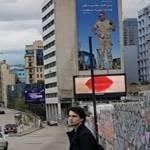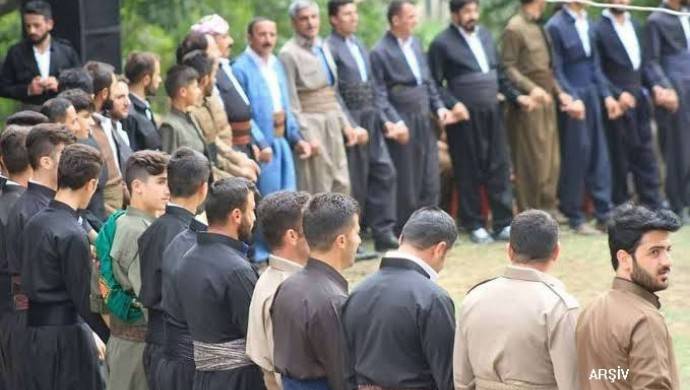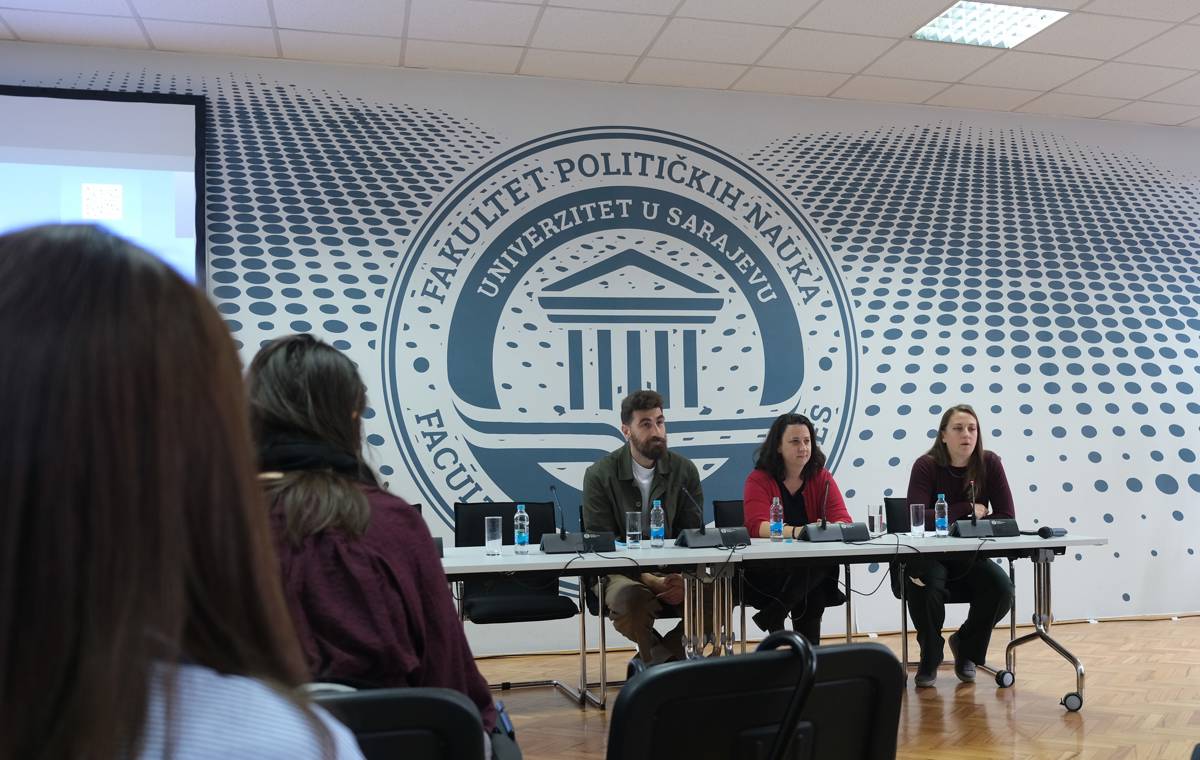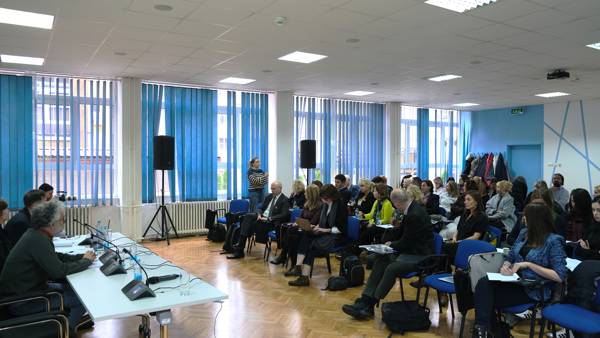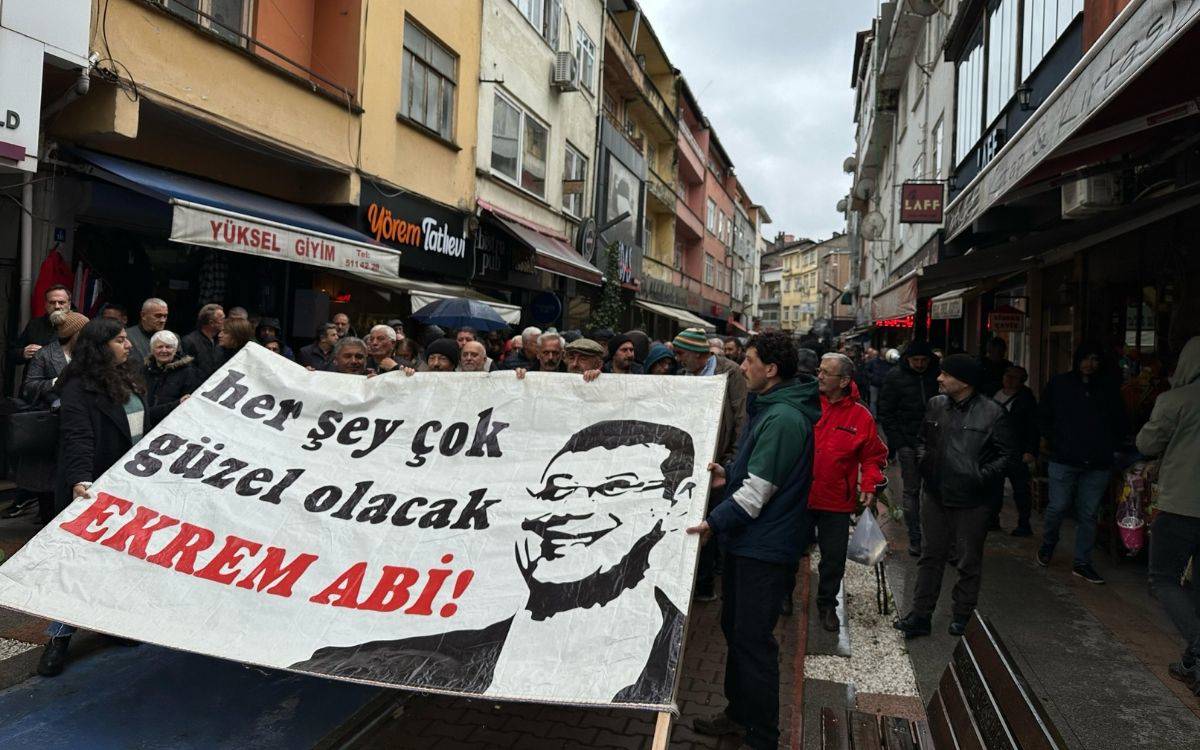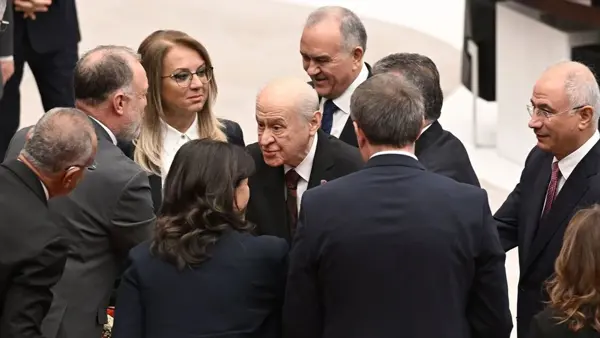In recent weeks, police have detained and arrested dozens of Kurds during and after weddings across the country, accusing them of making ‘terrorist propaganda’ due to the songs they played and the slogans they chanted.
On Saturday, police conducted raids in various districts of İstanbul, detaining at least 18 people. Eleven of these individuals were arrested, while seven were released under judicial control. The state-run Anadolu Agency reported that one detainee had shared a video on social media of themselves listening to a song ‘associated with the terrorist organization,’ referring to the Kurdistan Workers’ Party (PKK) militant group.
Last week, six individuals were detained after a wedding in Ağrı, and six women were detained in Siirt. Both events were reportedly traditional Kurdish weddings, featuring their songs, dance and attire. Apparently, the content of their songs and slogans were the reason for their detention.
In Mersin, a group of young people were taken into custody after videos of them dancing to music and chanting slogans in support of Abdullah Öcalan, the imprisoned PKK leader, resurfaced on social media, causing a nationalist backlash. While in custody, the youths were made to listen to the Turkish nationalist song “Ölürüm Türkiyem,” (I’d Die For You, My Turkey) and footage of those moments was shared on social media by Interior Minister Ali Yerlikaya in what Kurdish politicians deemed an act of 'torture.'
The 'terror' slogans
The pro-Kurdish Peoples’ Equality and Democracy (DEM) Party sees these actions as part of a legal harassment campaign against Kurdish culture. Sezai Temelli, the party's parliamentary group chair, questioned "what do you do when you go to weddings" and said “Kurds will continue to celebrate their culture.”
DEM’s Women’s Assembly posted a video of women dancing halay with the message, “We will sing our songs and dance against this mentality that opposes Kurdish culture and language.”
State and pro-government media outlets, on the other hand, emphasize what they consider 'pro-terrorist' slogans chanted at these events, appealing to nationalist sentiment.The most cited slogan is 'Biji Serok Apo,' which means 'Long live leader Apo."
Despite Öcalan serving a life sentence for crimes against the state, he has been embraced by the DEM and its predecessors, whose voter base remains around 5 million people, fourth-largest in the last election. DEM deputies often refer to him as 'Mr. Öcalan.'
Both the phrases 'Biji Serok Apo' and 'Mr. Öcalan' have led to numerous legal accusations in the past. However, the highest bodies of the Turkish judiciary have tolerated these slogans over the past decade or so. Both the Court of Cassation and the Constitutional Court have ruled multiple times that such expressions fall under freedom of speech.
One particular Constitutional Court decision from 2020 concludes that the applicant’s arrest due to chanting these slogans during an event violated their freedom of expression. However, their arrest due to another event, where more 'radical' slogans praising the PKK were chanted, did not constitute a violation according to the court.
Intensified crackdown
The recent arrests are part of a broader policy to suppress the Kurdish political movement, aligning with Erdoğan's intent to carry out large-scale military operations in both Iraq and Syria. In recent years, this policy has included frequent raids and 'terrorism-related' investigations against pro-Kurdish journalists, NGO members, lawyers, and politicians, removal of elected mayors in Kurdish-populated cities, and bans on Kurdish cultural events such as concerts and theater plays.
Erdoğan’s government had adopted a more conciliatory approach towards the Kurdish issue in the 2000s and early 2010s, initiating a peace process with the PKK in 2012. However, this process ended in 2015, and the resumption of the conflict led to a gradual increase in pressure on the Kurdish political movement. The failed coup attempt in 2016 and the subsequent state of emergency resulted in a significant purge, with numerous senior Kurdish politicians, including former HDP co-chairs Selahattin Demirtaş and Figen Yüksekdağ, being imprisoned.
Over the past year, Turkey has been preparing for a decisive operation against the PKK in northern Iraq. Ankara has been conducting intensive diplomatic efforts to gain support from the Iraqi government for the operation while maintaining a good relationship with the Kurdistan Regional Government (KRG). Turkey is also reportedly increasing military buildup in the region, and its operations have prompted the evacuation of at least 162 villages as of July, according to a local group. In March, President Erdoğan announced plans for a ‘final operation’ against the PKK in the summer, though this has not yet materialized.
Turkey has maintained a constant military presence in the Kurdistan region since 2019, as part of the military operations dubbed as the ‘Claw Operations.’ This period saw the four-decade conflict between Turkey and the PKK shifting to Iraqi territory, with the militant group's presence within the borders of Turkey having significantly diminished.
The DEM Party has called on the KRG and opposition parties in Turkey to oppose this policy of ‘occupation.' In a recent speech, the party’s co-leader Tuncer Bakırhan criticized the government’s actions, saying, “The people in Turkey are in a state of hunger and misery. While retirees are struggling to make ends meet and the country is experiencing widespread poverty, the government is pursuing conflict and war, first in Rojava and now in the Kurdistan Region. We do not accept this. The opposition should not support this war and conflict-driven mentality because this war belongs to the AKP-MHP government, not the people of Turkey."
However, President Erdoğan maintains that Turkey will launch those operations. "We will soon be closing the final lock in the Claw Operation Area in Northern Iraq," he said in mid-July, adding that the operations will also cover northern Syria, ruled by a Kurdish-led administration which Turkey considers an extension of the PKK. Erdoğan is also continuing his efforts to mend ties with his Syrian counterpart, Bashar al-Assad, hoping this will pave the way for the partial or complete elimination of the Kurdish-led administration. The outcome of these efforts, in whichever capacity, may soon become evident. (VK)




